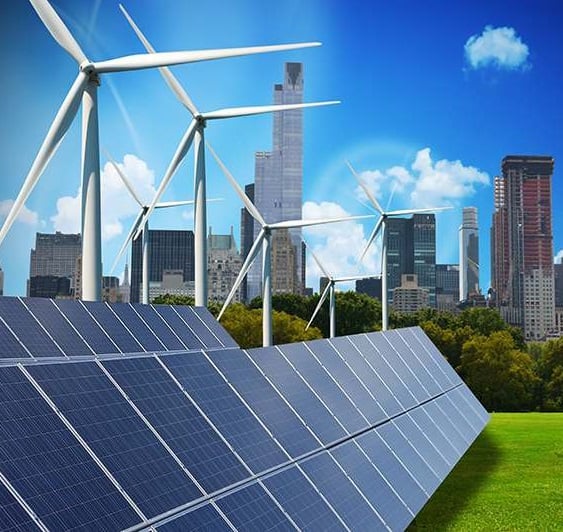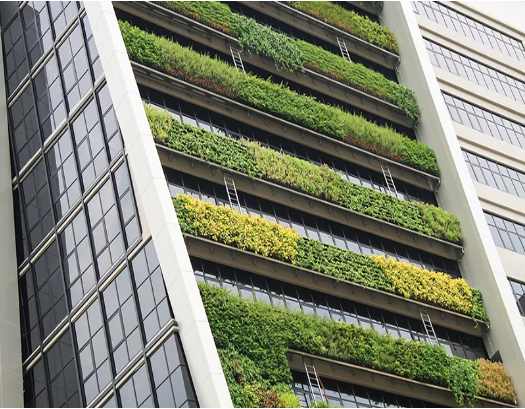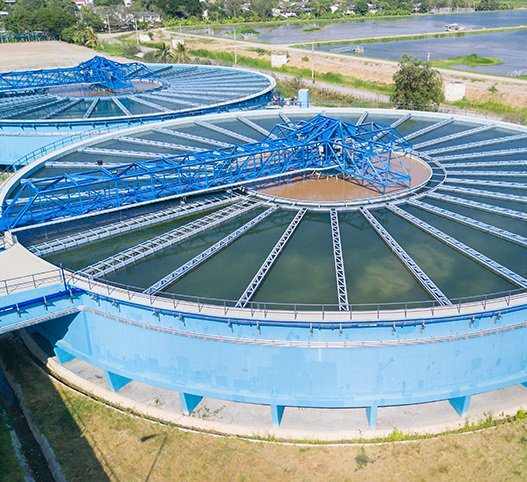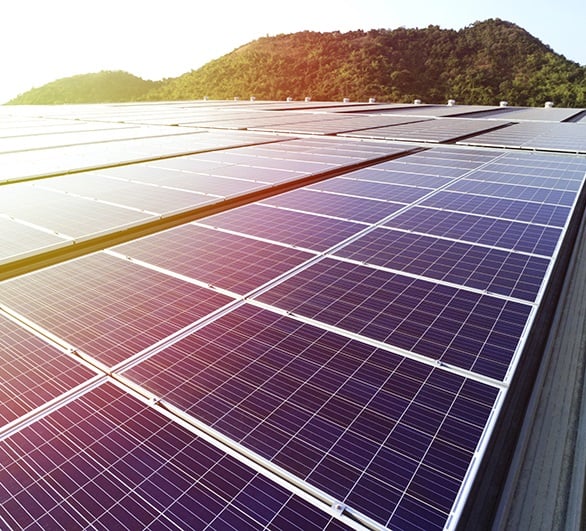.jpg?width=800&name=INDOOR%20AIR%20QUALITY(1).jpg)
These days we read a lot about how polluted our cities are due to smog, emissions from automobiles, power plants etc., but seldom think of the air that we breathe indoors, where we spend almost 90% of our time. It is rather surprising to know that indoor air can be polluted, too.
In 2016, household air pollution was responsible for 7.7% of the global mortality (WHO study).
What is Indoor Air Quality?

Indoor Air Quality (IAQ) refers to the air quality within the buildings, such as our homes, place of work, schools, colleges, hospitals etc.
The quality of the indoor air is an area of concern, as it can impact the health, comfort, well-being, and productivity of the building occupants.
These pollutants get trapped inside the building and gets continuously recycled, owing to which the concentration of the most common indoor air pollutant is much higher than the outdoors. WHO studies on IAQ, show that more people may suffer from the effects of indoor air pollution than from outdoor air pollution.
Classification and Source of Indoor Air Pollutants

To help reduce the risk of indoor air pollution, we must first understand the types and source of these common indoor air pollutants.
The indoor air pollutants can be classified as biological, chemical and particle, depending on the source of the pollutants.
Biological pollutants - bacteria, viruses, fungi, dust mites, animal dander, and pollen.
These biological pollutants are a result of inadequate maintenance and housekeeping, water spills, inadequate humidity control, condensation, or water intrusion through leaks in the building envelope or flooding.
Chemical pollutants – in the form of gases and vapours ex.
VOC which include emissions from products used in the building like office equipment; furniture, wall and floor coverings; pesticides; and cleaning and consumer products, accidental spills of chemicals, products used during construction activities such as adhesives and paints.
Other chemical pollutants are asbestos, lead and radon.
Gases such as carbon monoxide, formaldehyde, and nitrogen dioxide, are released while burning fuels such as biomass fuels (wood, dung, agricultural residues), kerosene and coal, for cooking and heating needs.
This is a major source of indoor air pollution, in developing countries.
Particle (Non-biological) - solid or liquid, non-biological, substances that are suspended in the air.
Dust, dirt, or other substances may be drawn into the building from outside.
Particles can also be produced by activities that occur in buildings such as construction, sanding wood or drywall, printing, copying, and operating equipment.
Types of particles found indoor are - TSP (Total suspended particulates) PM10, PM2.5, PM1.
What are the Effects of Indoor Air Pollution?

The effects of indoor air quality on our health can be seen soon after exposure or many years later, depending on the type of pollutants.
Poor indoor air quality (IAQ) has been linked to symptoms like headaches, fatigue, trouble concentrating, and irritation of the eyes, nose, throat and lungs.
Also, exposure to pollutants such as asbestos and radon, do not cause immediate symptoms but can lead to cancer after long exposure.
There is consistent evidence from WHO study on indoor air pollution that exposure to household air pollution can lead to acute lower respiratory infections in children under five, and lung cancer in adults.
What are The Ways To Improve IAQ?
.jpg?width=800&name=What%20are%20the%20ways%20to%20improve%20IAQ(1).jpg)
Preventive measures to improve IAQ, should be directed first towards identifying the sources that may be possible causes and reduce exposure.
The measures to keep healthy indoor air are include:
- Adequate ventilation - Let in fresh air so toxic chemicals don't build up within home.
- Control of airborne contaminants with proper maintenance and regular housekeeping of the building interiors, to use mild cleaners.
- Look for fragrance-free or naturally-scented laundry products
- Using no-VOC or low-VOC paints and glues.
- Bring nature indoors, it is proven by NASA research that indoor plants such as fern, areca palm are living air purifiers. They absorb the contaminants and keeps the air fresh.
References:
https://www.epa.gov/indoor-air-quality-iaq/introduction-indoor-air-quality
http://www.greenbuilding.com/indoor-air-quality/
https://www.webmd.com/lung/features/12-ways-to-improve-indoor-air-quality#3
https://www.osha.gov/SLTC/indoorairquality/index.html







-1.jpg?width=521&name=INDOOR%20AIR%20QUALITY(1)-1.jpg)







